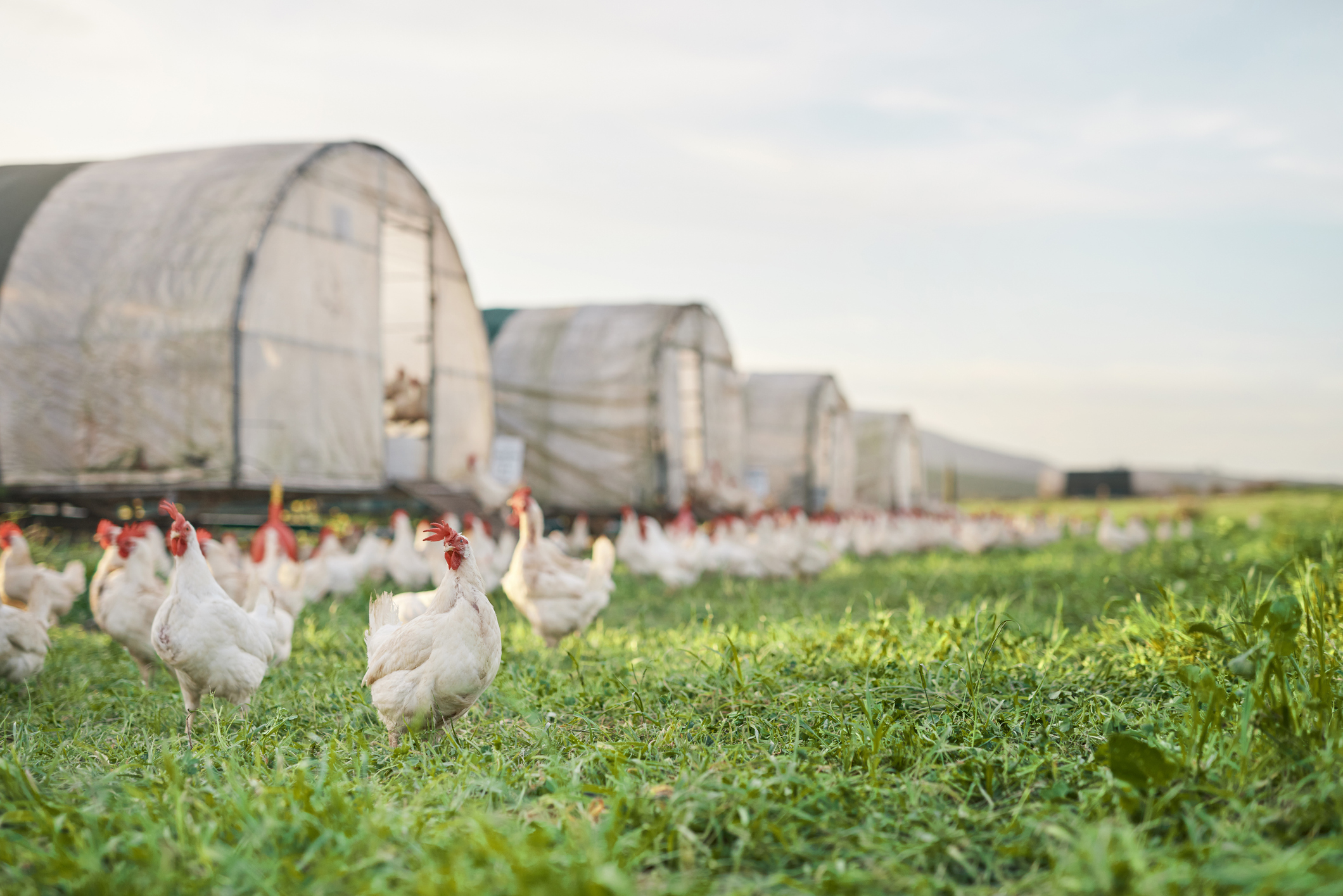Avian influenza is a highly contagious disease that can spread through international trade of animals and their products. However, the standards of the World Organisation for Animal Health (WOAH) establish measures that guarantee health security in international trade while providing tools for affected countries to continue trading safely. This way, we can protect animal health and minimise unnecessary disruptions and potential negative consequences for the local economy.
What measures can a country affected by avian influenza take to continue trading safely?
An affected country can maintain safe trade if:
- It has quality Veterinary Services, in accordance with the standards of WOAH’s Terrestrial Code.
- It immediately and transparently notifies outbreaks to WOAH through WAHIS platform.
- It implements rapid and effective containment measures, clearly defining the affected areas.
- It enforces compliance with biosecurity standards in establishments and processing plants.
- It bases the recognition of its free zones or compartments on WOAH’s Terrestrial Code.
- It maintains constant dialogue with trading partners to avoid unjustified measures.
What can the importing country do to minimise the impact when trading with a country affected by avian influenza?
The importing country must comply with the principles of the SPS Agreement2 of the World Trade Organisation (WTO) and base its decisions on WOAH’s standards or risk assessments in line with them, avoiding total bans.
Some of the recommended measures:
- Obtain official information from the affected country through WAHIS.
- Maintain transparent communication with the veterinary authority of the affected country to assess the situation in real time.
- Apply regionalisation or compartmentalisation measures, limiting restrictions or the requirement for additional sanitary measures to the affected areas only.
Should the importing country suspend all imports from the affected country?
No, WOAH standards provide alternatives to avoid total bans. Instead, they recommend:
- Adapting the required sanitary measures according to the commodity in question (live birds, meat, eggs, meat products, and others), given that some do not pose a risk in themselves (they are considered ‘safe commodities’) and others can be traded safely with the appropriate measures, detailed in Chapter 10.4 of the Terrestrial Code.
- Adapting the required sanitary measures to the specific status of the population or subpopulation of origin of the goods, recognising officially endorsed disease-free zones or compartments by the veterinary authority.
Are there goods that can continue to be traded during an outbreak?
Yes. Some goods can be traded without risk, even during an avian influenza outbreak, provided they comply with WOAH standards, particularly with regard to export certification and import controls:
- extruded dry pet food and coated ingredients after extrusion;
- washed and steam-dried feathers and down from poultry and other birds.
Other commodities such as meat products, egg products, and other poultry products can be safely traded by applying the sanitary measures recommended in the Terrestrial Code.
For goods that require measures, is it possible to continue trading in the presence of the disease? How can this be done without risk?
Yes, through health certification and appropriate controls:
- Use virus inactivation processes (heat treatment, pasteurisation) in accordance with WOAH standards when necessary.
- Ensure high levels of biosecurity and traceability that support veterinary control and certification processes.
- Require official health certificates that guarantee compliance with WOAH standards.
- Have quality veterinary services, in accordance with the standards of WOAH Terrestrial Code, that generate confidence in health information and international veterinary certification.
Facing an outbreak of avian influenza does not mean that a country must isolate itself from international trade. Implementing WOAH standards, in accordance with WTO principles, allows for a proportionate and evidence-based response, protecting animal health in the importing country and maintaining confidence among trading partners. Transparency, regionalisation and biosecurity, among other measures, are key to enabling an affected country to continue to participate safely in global markets.
For more information:
- WOAH Standards (Chapter 10.4: Infection with high pathogenicity avian influenza viruses)
